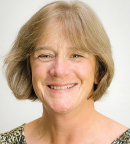
The landscape of oncology is rapidly changing. And many ASCO initiatives are helping practices take the necessary steps to prepare for the challenges ahead.— Tracey F. Weisberg, MD
Tweet this quote
ASCO’s State Affiliate Council serves as an advisory group to ASCO’s Board of Directors on issues relating to its State/Regional Affiliates and their members, and serves as a vehicle for effective communications between the Board and domestic membership. The Council is made up of physician leaders and executive directors from each of ASCO’s 48 Affiliates.
The ASCO Post spoke with Council Chair Tracey F. Weisberg, MD, about some of the issues that were discussed at the Council’s most recent meeting on October 28, 2016. Board-certified in both internal medicine and oncology, Dr. Weisberg is lead physician at the New England Cancer Specialists in Scarborough, Maine.
Creating a Sounding Board
What prompted the formation of ASCO’s State Affiliate Council?
ASCO recognized the importance of having a mechanism for two-way communication between its Board and domestic members. From that the Council was formed.
ASCO State/Regional Affiliate Council Executive Subcommittee 2016–2017
Tracey F. Weisberg, MD, Chair
New England Cancer Specialists
Scarborough, Maine
Melissa Dillmon, MD, Chair-elect
Harbin Clinic Medical Oncology
Rome, Georgia
Paul Celano, MD, FACP, Immediate Past Chair
Greater Baltimore Medical Center
Baltimore, Maryland
Karen Beard, CPC, CPCO
Georgia Society of Clinical Oncology
Atlanta, Georgia
Ralph J. Hauke, MD
Nebraska Cancer Specialists
Omaha, Nebraska
Dawn Holcombe, MBA, FACMPE
DGH Consulting
South Windsor, Connecticut
Thomas Marsland, MD
Cancer Specialists North Florida
Orange Park, Florida
Julie Vose, MD, MBA, FASCO Board Liaison
University of Nebraska Medical Center
Omaha, Nebraska
Oncology Care Model
Please tell our readers how the State Affiliate Council has been thinking about the Centers for Medicare & Medicaid Services Oncology Care Model and how it might affect practices.
The idea behind the Oncology Care Model was to promote higher quality care and lower the cost of care to Medicare. A total of 197 practices have been accepted into the program, which is designed with the aim of reducing costs by intense care coordination and implementation of quality metrics. The Oncology Care Model gives those participating practices an opportunity to go into a two-sided risk model in 2017 or 2018, which would remove them from the Merit-Based Incentive Payment System part of the new Quality Payment Program and instead qualify them for a flat payment as an advanced alternative payment model in 2019.
The care cost analysis in the Oncology Care Model includes chemotherapy drugs plus all Part A and Part B services, such as laboratory tests, emergency room visits, hospitalization, and radiation therapy generated by all physicians. The State Affiliate Council has been monitoring the implementation of this model because of the implications for practices and the anticipation that the program will be expanded upon in the future.
In addition, the ASCO Patient-Centered Payment model has been implemented at a practice with a commercial payer. This model seeks to accomplish many of the same goals as the Oncology Care Model, but it has not yet been accepted as an advanced alternative payment model by the Centers for Medicare & Medicaid Services.
Council leadership has been working closely with ASCO’s new Clinical Affairs Department, led by Stephen Grubbs, MD, to ensure that the appropriate training and knowledge of the Quality Payment Program are getting out to the community to help practices and ASCO’s Affiliate leaders prepare for the coming payment restructuring.
White-Bagging
Has the Council discussed the issue of “white-bagging”?
Yes. White-bagging is an alternative drug-distribution model that occurs when a specialty pharmacy dispenses a specific drug to a specific patient and ships it out to the oncology practice. White-bagging is an important issue for practices. Also, white-bagging is complicated in oncology, because the drug regimens are highly complex and often require dosing adjustments at the time of administration. The State Affiliate Council is participating in a recently formed ASCO working group to determine the best way to address the concerns raised by these types of policies.
New Wave of Payment Reform
From your perspective as an oncologist and the Chair of the State Affiliate Council, what is the biggest challenge facing the oncology community?
That’s a very broad question, so broad, in fact, that you could write a book on it. The oncology environment continues to change, and many of those changes offer challenges to oncologists. The ongoing payment reform movement, 340B drug pricing, and other environmental factors have driven practice consolidation. Consolidation has its benefits, but it has also taken a toll on small community practices, which provide personalized care to patients in the practice’s vicinity. There are far more hospital-based programs than there were 15 years ago. The extra expenses of information technology staff and administration can certainly increase the cost of practicing oncology, which is another reason for the consolidation movement we’ve seen.
That said, this new wave of payment reform does raise the bar for quality care. The documentation involved in these reforms is burdensome, but it also provides us with evidence of what we do in our practice. The landscape of oncology is rapidly changing. And many ASCO initiatives are helping practices take the necessary steps to prepare for the challenges ahead. ■
Disclosure: Dr. Weisberg reported no potential conflicts of interest.

